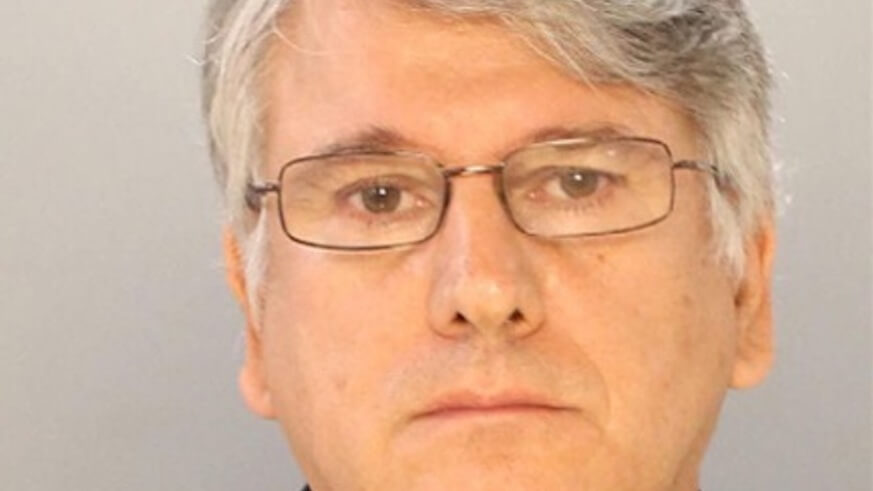A disgraced former Drexel neurologist will be in court Tuesday for the latest hearing on charges of alleged sexual misconduct against seven female patients.
But Dr. Ricardo Cruciani’s case may be far from over, with another 10 women now stepping forward to accuse him of sexual misconduct while providing them with medical care. And criminal investigations are reportedly underway into alleged abuse at hospitals where Cruciani worked in New York and New Jersey.
Attorney Jeffrey Fritz, who is representing a dozen of the alleged victims, is trying to figure out how Cruciani was able to get hired at Drexel University’s hospital despite alleged victims’ claims that they complained about his conduct at other hospitals where he worked, Beth Israel in Manhattan, then Capital Institute for Neurosciences’ Center for Pain Management in New Jersey.
“If you’re hiring somebody at a facility in Philadelphia, how much was asked about his past?” asked Fritz, an attorney Soloff & Zervanos, PC. “We know for sure that complaints were made by multiple women at Beth Israel in New York. … If he gets hired again at Capital and Drexel, and there’s no disclosure about those complaints … some serious questions are raised about, ‘Why wouldn’t Beth Israel disclose that information?’”
Cruciani is facing charges in Philadelphia of indecent assault, exposure and harassment, for incidents related to seven different women at Drexel. Drexel fired Cruciani in March after an internal investigation, and he was charged by the Philly DA’s office in September. His defense lawyer declined to comment on the case but has stated he is “wrongly accused and will plead not guilty.”
The victims’ allegations against the doctor range from forced kissing and groping to exposing himself and masturbating in front of them, pressuring them to perform oral sex, and at least three allege they were forced to have sexual intercourse with the doctor.
Fritz, who said he is planning a lawsuit against the medical facilities that employed Cruciani, said some of his clients continued to see the doctor despite the alleged abuse, because they suffered from rare neurological pain disorders they felt only he could treat.
“He was good,” Fritz said. “Some of these women had been to more than a dozen pain management specialists or doctors for help to get relief from pain … He comes along, he’s helpful to them, and the only way that they’re going to continue to get care and treatment is by succumbing to what he’s asking for and doing to them.”
One victim, 40, told the Associated Press she saw Cruciani at Beth Israel, and he kissed her during an early appointment. Her primary care doctor at the same hospital allegedly responded to her complaints that Cruciani was “handsy” and to “Watch yourself.” Over 10 other incidents, she said he forcibly kissed her and rubbed her breasts and genitals.
A 55-year-old woman claims she saw Cruciani for years while suffering similar abuse. She claims she brought a friend to one appointment to deter the doctor, but he retaliated by delaying refilling her prescribed opioid medications, she claims.
Another victim, Hillary Tullin, a former news producer for ABC and CBS, came forward to share her allegations against the doctor after he was charged in September.
She said he forcibly kissed her soon after she met him in 2002 at Beth Israel; but after a few weeks, she returned, and went on to experience “at least a dozen” other incidents of the doctor touching her breasts, genitals, her performing oral sex on him and him doing the same to her.
“There was nothing consensual about it,” she told the AP. “When you’re being held in a locked office with someone for three hours, and you know that that person holds your health in his hands, you make a decision. And my decision was that I wanted to be able to walk again.”
Fritz stressed that the women felt trapped: “They had filed complaints, disclosed to this other doctors in the facility, and nothing was done about it. So from their perspective, what good was it to mention it again if nobody’s listening to you?”
Beth Israel, where the doctor worked until 2014, shut down in 2016 and was absorbed into Mount Sinai Hospital, which has declined to comment on the case.
Capital, where he worked from 2014 to 2015, said no complaints were received about Cruciani.
Drexel, where he worked from 2016 to 2017, previously said they were “deeply disturbed” by the complaints, terminated Cruciani and notified all relevant authorities after becoming aware of the allegations. They noted no red flags were raised during the hiring process: “Drexel University conducted a thorough background check on Dr. Cruciani as we do with all potential employees and it did not reveal any improper or illegal conduct,” they said via email.
Cruciani’s preliminary hearing is scheduled for Nov. 21.




























